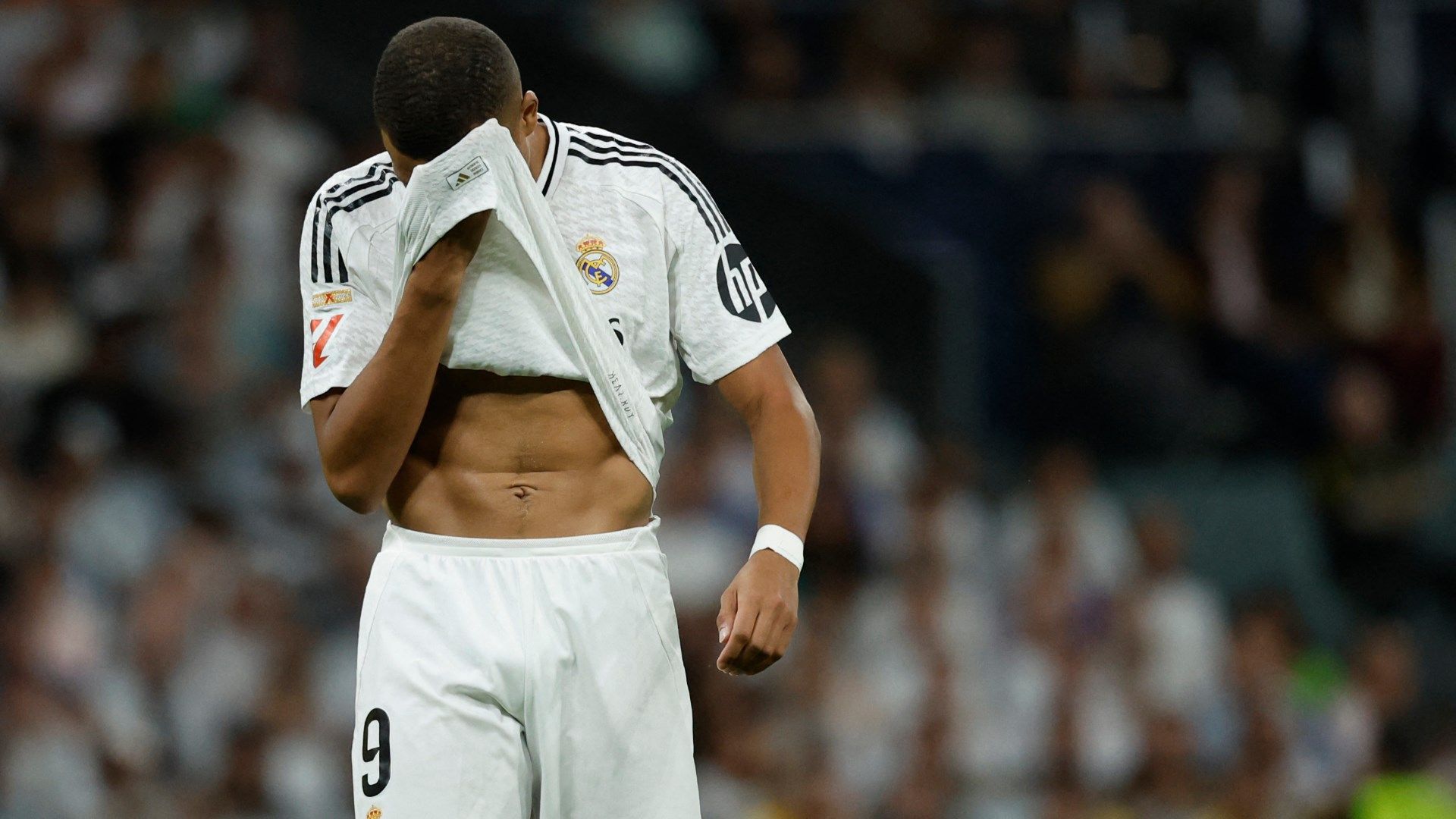The anticipation surrounding Real Madrid’s 2024-25 season was palpable. With the acquisition of Kylian Mbappe, Los Blancos appeared poised to dominate European football for years to come. The French superstar’s arrival was meant to be the final piece in an already formidable puzzle, creating what many believed would be an unstoppable force in both domestic and continental competitions.
However, as the season has unfolded, the European giants find themselves grappling with unexpected challenges that have cast doubt on their championship aspirations. Nine points adrift of Barcelona in La Liga, albeit with a game in hand, and facing uncertainty in their Champions League campaign, Real Madrid’s struggles have prompted serious questions about the team’s direction under Carlo Ancelotti.
The integration of Mbappe into the squad has proven more complex than initially anticipated. While his statistical output remains impressive – eight goals and two assists in 14 appearances – the French captain’s presence has inadvertently disrupted the team’s established dynamics. Mbappe’s tendency to drift toward the left flank, combined with his minimal defensive contribution, has created tactical challenges that Ancelotti is yet to resolve effectively.
Perhaps most concerning is the impact on Jude Bellingham’s role within the team. The English midfielder, who enjoyed a spectacular debut season in Madrid, has seen his goal-scoring prowess diminish significantly. The presence of both Mbappe and Vinicius Junior in advanced positions has forced Bellingham into a more peripheral role, limiting his ability to make the late runs into the box that characterized his earlier success at the club.
.jpg)
The defensive frailties have become increasingly apparent, with the team conceding 15 goals in 14 matches despite typically dominating possession. Individual errors have plagued the backline, with even the usually reliable Antonio Rudiger showing uncharacteristic vulnerability. The situation has been further complicated by Dani Carvajal’s severe knee injury, leaving a significant void at right-back that Lucas Vazquez, a converted winger, has struggled to fill adequately.
However, the most profound impact on Madrid’s performance stems from an unexpected source: the retirement of Toni Kroos. The German midfielder’s absence has exposed a fundamental flaw in the team’s structure – the lack of a true orchestrator in midfield. Without Kroos’s ability to control tempo and manage space, Madrid’s play has become more erratic, alternating between frantic and sluggish phases that leave them vulnerable to counterattacks.
The current midfield options, while talented, offer different profiles that don’t quite replicate Kroos’s unique skillset. Fede Valverde and Bellingham, despite their technical abilities, lack the same composure and game-reading capabilities. Meanwhile, Aurelien Tchouameni and Eduardo Camavinga, though excellent destroyers, are still developing their playmaking abilities.
The tactical implications of these issues extend beyond mere formation adjustments. Madrid’s traditional ability to maintain control during difficult periods has diminished, forcing them into a more vertical, aggressive style of play. While this approach can be effective, it often leaves them exposed defensively and struggling to manage games effectively.
Perhaps most worryingly for Ancelotti is the apparent erosion of the team’s famous unity and spirit. The harmonious atmosphere that has been a hallmark of his tenure appears to be fraying at the edges. On-field frustrations are becoming more visible, with players displaying their disappointment through animated gestures and verbal exchanges. The club’s decision to boycott the Ballon d’Or ceremony over Vinicius Junior’s ranking has added another layer of tension to an already strained environment.
As Madrid prepare for crucial fixtures, including their upcoming Champions League clash with AC Milan, Ancelotti faces the considerable challenge of addressing these various issues simultaneously. The Italian tactician must find a way to maximize Mbappe’s obvious talents while maintaining the team’s overall balance, reinvigorate Bellingham’s influence on games, shore up the defensive unit, and perhaps most importantly, restore the positive atmosphere that has been so crucial to the club’s recent successes.
One potential solution could involve repositioning Militao to right-back and dropping Tchouameni into central defense, though this would be a temporary fix at best. The longer-term answers may lie in the transfer market, with rumors already circulating about potential defensive reinforcements.
The current situation at Real Madrid, while concerning, is not yet critical. The quality within the squad remains exceptional, and few would bet against Ancelotti finding solutions to these challenges. However, the coming weeks will be crucial in determining whether this period represents a temporary adjustment or signals more fundamental problems within the team’s structure.
For now, the priority must be rediscovering the balance and harmony that has made Madrid such a formidable force in recent years. Only then can they hope to fulfill the immense potential that had everyone so excited at the season’s outset.



